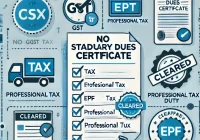Who prepares the financial statements?
Prepares financial Statement The financial statements are typically prepared by the company’s accounting and finance department or by professional accountants and auditors. These individuals have the knowledge and expertise to accurately compile and analyze financial data in accordance with accounting principles and standards. It is mandatory to Prepares financial statement. In smaller businesses, the financial… Read More »







